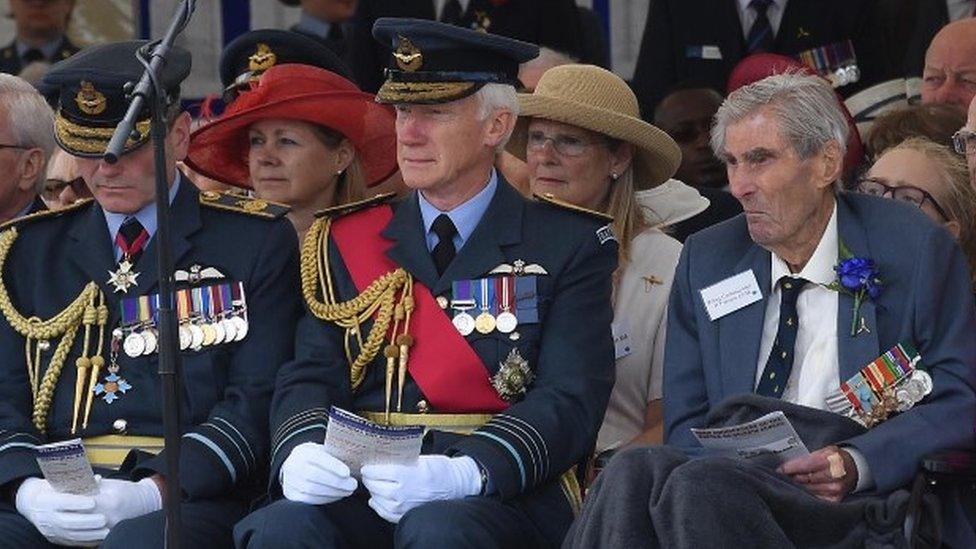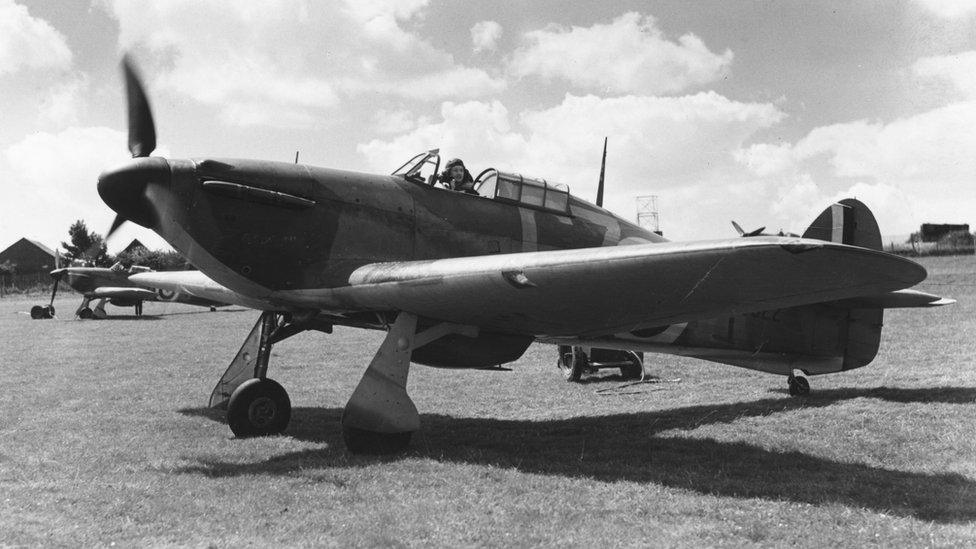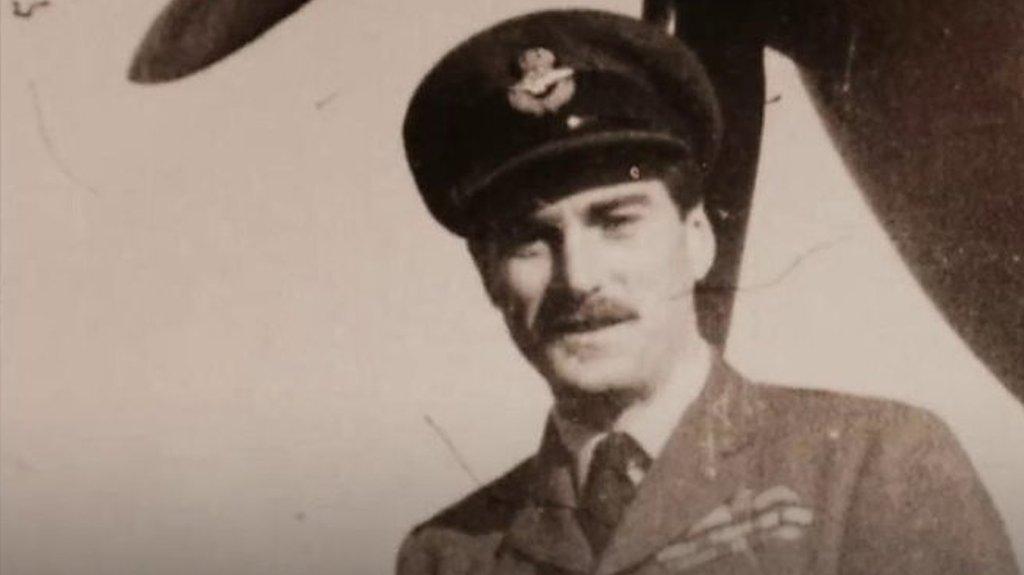Battle of Britain ace fighter pilot Paul Farnes dies aged 101
- Published
Paul Farnes on what it was like to fly in the Battle of Britain
The last surviving Battle of Britain ace pilot from World War Two has died aged 101.
Wing Cdr Paul Farnes was among the 3,000 airmen - The Few - who defended Britain's skies in 1940.
He was born in Hampshire and died on Tuesday morning in West Sussex, where he had lived for most of his life, the Battle of Britain Memorial Trust said.
Paying tribute, it described him as a "distinguished man - who was generous with his time in support of the trust".
His battle victories made Wing Cdr Farnes an ace, a term taken to mean any fighter pilot credited with shooting down five or more enemy aircraft.
His tally was six enemy aircraft destroyed, one probably destroyed and six damaged, the trust said.

Wing Cdr Farnes at memorial day at Capel-le-Ferne, Folkestone
There are now thought to be only two surviving members of The Few - Flight Lieutenant William Clark and Flying Officer John Hemingway, both aged 100.
The trust added Wing Cdr Farnes was the last member of The Few fit enough to be able to attend the aerial conflict's memorial day in 2019.
It said he had "proudly" represented his RAF colleagues at the service of commemoration just a week before his 101st birthday, in July.
The trust said Wing Cdr Farnes was "very proud" of his Distinguished Flying Medal (DFM), which he received for his exploits in the Battle of Britain.
In 2015, the then retired Sqn Ldr described the "moving" moment he and his comrades were spontaneously applauded during a service at Westminster Abbey to mark the 75th anniversary of the Battle of Britain.
Mr Farnes, who flew a Hurricane during the war, said: "It was very emotional today because, when we walked out of the abbey, the audience applauded and it's never happened before at the annual service and I was very moved by it.
"It is amazing that the Battle of Britain has caught on with the public and I am very proud to have been a part of it."
Mr Farnes joined the Royal Air Force Volunteer Reserve in 1938, later joining RAF No 501 Squadron and fighting in the Battle of France in 1940.
After the Battle of Britain, he was commissioned as an officer and served as an instructor and fought in Malta with No 229 Squadron as well as serving in North Africa and Iraq.
As World War Two ended, he was in command of two squadrons in the UK.
Remaining in the RAF until 1958 when, having been appointed Sqn Ldr, he retired, retaining the rank of Wing Cdr.

What was the Battle of Britain?

Paul Farnes became an ace pilot flying the Hurricane in the Battle of Britain
On 16 July 1940, Adolf Hitler ordered preparations for the invasion of Britain codenamed Operation Sealion.
Britain retained naval superiority and Hitler knew that an amphibious invasion would be made easier if Germany could establish control of the air in the battle zone.
The battle for control of the skies became known as the Battle of Britain.
The Luftwaffe had the clear advantage - 750 long-range and 250 dive bombers, 600 single-engined and 150 twin-engined fighters - significantly more than RAF Fighter Command's 600 planes.
But the Luftwaffe was hampered by an inconsistent plan of action whereas the British forces were well prepared. Radar technology - being used for the first time in battle - gave plenty of notice of the German bombing raids.
The air attacks were initially focused on British shipping, ports and airfields along the English Channel but gradually the battle moved inland.
The Germans stepped up their bombing raids in August and targeted London. Britain retaliated by bombing Berlin.
The German forces were losing bombers quicker than they could replace them and so they switched to night-time raids, which continued until March 1941.
But by then Britain had won the Battle of Britain - and Operation Sealion was postponed until further notice.

- Published10 July 2018
